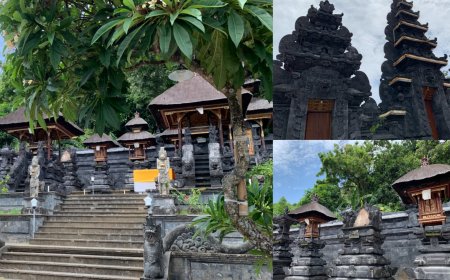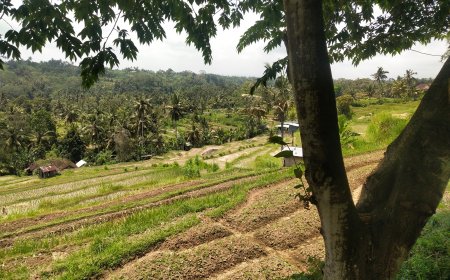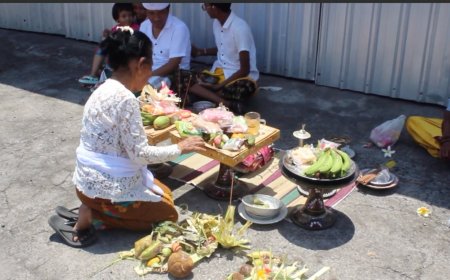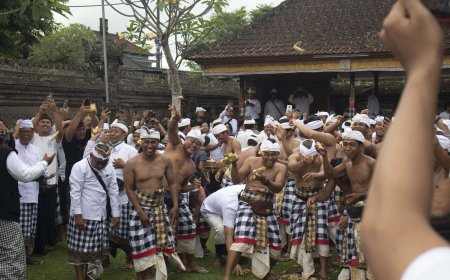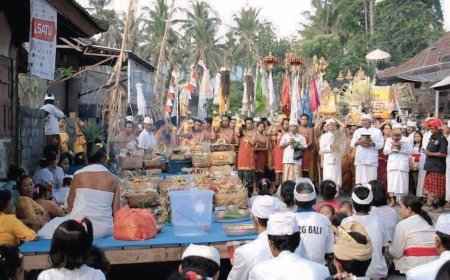Mreteka Merana: Ritual for Cleansing the Niskala Aspect of Bedha Traditional Village
Mreteka Merana, a unique tradition in Bedha Traditional Village, Tabanan, Bali, is a ritual resembling a cremation ceremony but intended for rats. More than just pest control, this ritual reflects a philosophy of balance with nature and harmony with unseen forces. The Balinese believe that rats, as part of the ecosystem, should be respected to protect the harvest. Why are rats considered so important in this ritual.
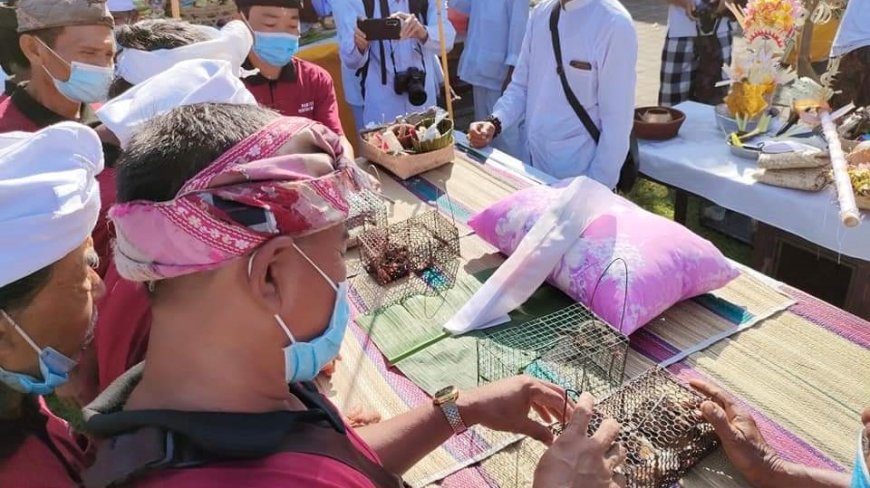
Ngaben is widely recognized as a cremation ceremony specifically for humans, aimed at releasing a person’s soul to the afterlife so that they may achieve a better reincarnation. However, not many know that there is a unique tradition resembling the Ngaben procession, but it is intended for animals, specifically rats. This tradition is called Mreteka Merana or the "cremation of rats." It reflects not only the community’s effort to control pests that harm rice fields and crops but also carries deep philosophical meaning. Practiced mainly in the traditional village of Bedha in Tabanan, Bali, Mreteka Merana is a ritual that embodies the concept of harmony between humans, nature, and spiritual beings, with the goal of maintaining the fertility of agricultural land, which is the main livelihood for the local community.
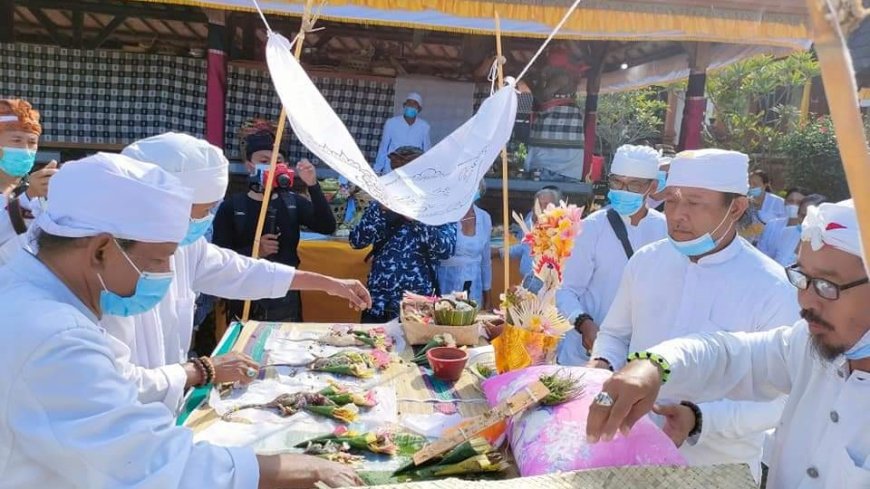
Mreteka Merana (Photo Source: Editor's Collection)
In Bali, rats that damage the rice fields are seen as a symbol of natural disturbance or an imbalance that threatens the harmony of life. For the agrarian society in the village of Bedha, rats are a natural enemy in the world of agriculture. As a form of local wisdom, Mreteka Merana is considered a Bhuta Yadnya ritual, a type of offering to Bhuta Kala (spiritual entities believed to influence the balance of ecosystems and agriculture). Additionally, Mreteka Merana is part of the Nangluk Merana ritual, a ceremonial repelling of misfortune specifically intended to remove disturbances to rice plants, both visible and invisible. The term merana in Balinese means suffering or disaster that brings disease or poses a threat to the harvest.
The ritual began around 1965 when the community in Bedha started experiencing a rising rat population that was attacking their rice fields. Unlike conventional pest control methods, in Mreteka Merana, captured rats are treated specially in a ceremony symbolized by nganyud or release, intended to send their spirits peacefully back to nature and prevent future disruptions to the harvest. The community believes that this way, the rats will reincarnate in a form that is more beneficial to the ecosystem. The procession holds the belief that the cycle of life should be preserved in balance and that every creature, including rats, has its place and role in the universe.
Mreteka Merana is part of the Bhuta Yadnya ceremony, which means a sacrifice for Bhuta Kala spiritual forces or spirits believed to be both protectors and potential threats to human life if not treated with respect. In this ritual, the krama subak the community of rice farmers collectively captures rats that pose a threat to their harvest. The captured rats are treated respectfully and brought to a place symbolized as a bade a replica of the human cremation tower, which represents honoring their existence as part of nature.
This ritual is aligned with the philosophy of Tri Hita Karana, a principle of life that teaches humans to maintain harmonious relationships with God Parhyangan, with fellow humans Pawongan, and with nature Palemahan. By maintaining this balance, the community believes that cosmological harmony will be achieved, resulting in an abundant harvest free from harmful disruptions. In Balinese belief, these rats are associated with Lord Ganesh, a deity revered as both an obstacle remover and protector of humanity. Thus, this ritual is also viewed as a form of respect towards beings considered manifestations of the divine.
The Mreteka Merana ceremony is also an opportunity for the local community to gather, work together, and strengthen bonds. Together, they prepare all the necessary elements for the ceremony, from catching rats in the fields to making simple ceremonial equipment. This is not just a way to rid the land of pests but also serves as a means to foster unity and solidarity among residents. The krama subak, or local farmer association, actively participates in this ritual, working together to keep the farmland productive and safe from rat disturbances without harming the ecosystem.
Besides providing social benefits, Mreteka Merana also has positive ecological impacts. Compared to the use of pesticides that can harm the environment, the spiritual approach of this ceremony offers a more eco-friendly method. The Balinese believe that every living creature has a function within the ecosystem, and excessive rat extermination would only disrupt nature's balance. In this way, they respect the lives of rats as part of nature while still maintaining the balance to prevent crop damage.
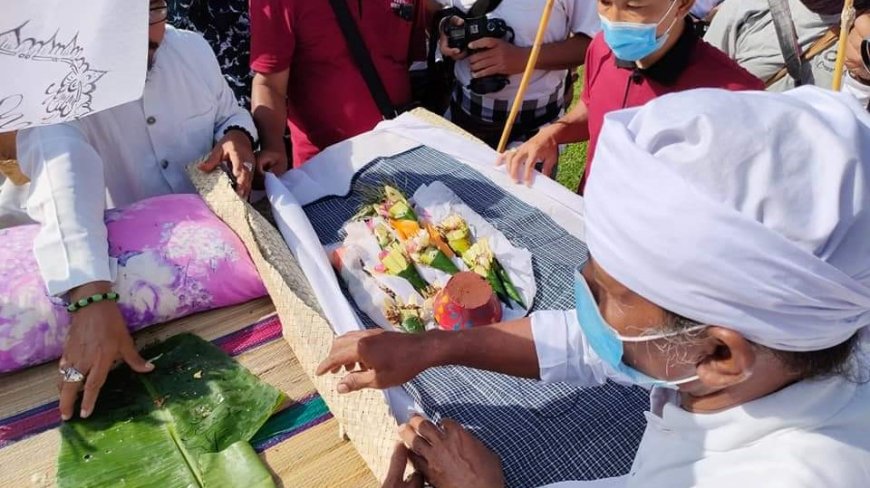
Mreteka Merana (Photo Source: Editor's Collection)
Amidst modern agricultural practices that rely on chemical solutions, Mreteka Merana stands as an example of local wisdom that shows how humans and nature can coexist harmoniously through meaningful traditional practices. This tradition serves as a reminder to maintain the sustainability of ecosystems in a natural way, not only to achieve good results but also to preserve nature for future generations.
The uniqueness of Mreteka Merana has even drawn attention from regional officials and academics. The Regent of Tabanan, Dr. I Komang Gede Sanjaya, SE, MM, once attended this ceremony as a show of support for preserving the local traditions and wisdom that define Tabanan as the rice granary of Bali. According to him, Mreteka Merana is not just a local tradition but also a symbol of respect for farmers as earth guardians who provide food for the broader community. By continuing this tradition, the people of Tabanan demonstrate their dedication to maintaining the balance of the ecosystem and ensuring agricultural sustainability without harming the environment.
Mreteka Merana is a testament to how decades-old local wisdom remains relevant to this day. This tradition shows that the Balinese people do not merely see rats as pests but also as creatures that hold a significant role in the ecosystem. With a respectful approach, they teach that natural balance can be achieved by honoring every living being, big or small. This tradition is not only a rich cultural heritage but also offers an ecologically sustainable solution in facing the challenges of modernization.
Through Mreteka Merana, the Balinese remind us that in every relationship between humans and nature, there is a responsibility to care for and nurture the earth we live on. This tradition is a manifestation of the Balinese philosophy of life, upholding cosmological harmony, and serves as a message to preserve nature’s balance for the continuity of life in the future.




